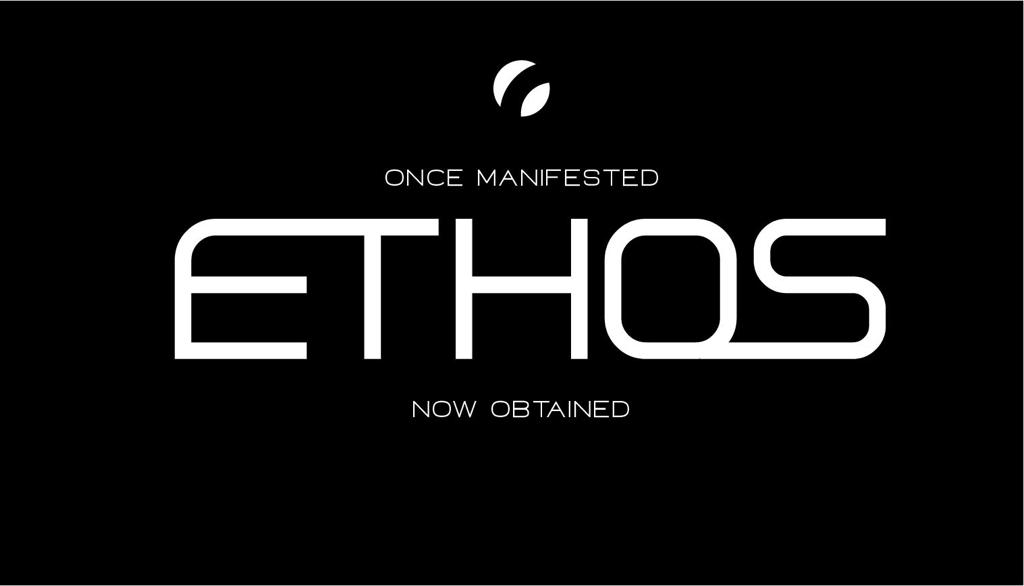When you’re ready to sell your house, you’ll need to consider your options carefully. Two common ways to sell a house are to an investor or a traditional buyer. Each option has its pros and cons that can impact your decision. In this article, we’ll take a closer look at both options and provide valuable insights to help you make an informed decision in the US market.
Key Takeaways:
- When selling your house, you have two options: selling to an investor or a traditional buyer.
- Both options have their pros and cons.
- Consider key factors such as timeline, financial goals, property condition, and market conditions.
- Seek professional advice when needed.
- Ultimately, it’s up to you to make the best decision for your unique circumstances.
Understanding Investor Purchases
When it comes to selling houses in the US market, you may encounter investors who are interested in purchasing your property. It is essential to understand who an investor is and how their purchasing process may differ from that of traditional buyers.
An investor is typically someone who buys houses with the objective of making a profit. This can be achieved through renting, flipping, or holding the property for an extended period. Whereas traditional buyers are often looking for a place to call home and may be more emotionally attached to a property.
Investors typically have a more streamlined buying process, which can be beneficial to sellers who are looking for a quick sale. Since investors often pay in cash, they can close the deal much faster than traditional buyers who may require financing.
Investor purchases can be an excellent option for sellers looking for a fast and hassle-free sale.
| Investor Purchases | Traditional Buyer Purchases |
|---|---|
| Often in cash | May require financing |
| Quick closing process | Longer sales timeline |
| May buy properties in as-is condition | May request repairs or contingencies |
While selling to an investor may seem like the perfect option for some sellers, it is essential to understand the potential drawbacks as well. You may receive lower offers from investors than you would from a traditional buyer, and there may be limited room for negotiation. Additionally, not all investors are experienced or trustworthy, so it is essential to research potential buyers carefully.
Before deciding to sell your house to an investor, make sure you understand the process and weigh the pros and cons carefully.
Selling to an Investor: Benefits for Your House in the US Market
When selling your house, you have the option to sell to an investor or a traditional buyer. While both options have their advantages and disadvantages, selling to an investor can have several benefits in the US market.
- Quicker sale: Investors usually have cash on hand and can close on a sale much faster than traditional buyers, who often need financing.
- Potential for cash offers: Since investors are often looking for fixer-uppers or properties with high potential returns, they may offer cash for your property.
- Flexibility in terms: Investors may be more flexible in their terms, such as allowing you to stay in the property for a short period after closing.
- Sell “as-is”: Investors are often willing to buy properties in as-is condition, saving you the time and money of making repairs or upgrades.
A sale to an investor may be particularly beneficial if you’re facing a financial hardship, need to move quickly, or have a property that requires repairs or renovations.
It’s important to note, however, that selling to an investor may also have its drawbacks. For instance, you may receive a lower offer than you would from a traditional buyer, and you may have limited negotiation power compared to a traditional sale.
If you’re considering selling to an investor, it’s essential to do your research and work with a reputable investor who has experience in the industry. A trusted real estate agent can also offer guidance and advice during the sale process.
Ultimately, the decision of whether to sell to an investor or traditional buyer will depend on your unique circumstances and priorities. By evaluating the pros and cons of each option, you can make an informed decision that meets your needs and goals.
Selling to an Investor: Drawbacks to Consider
If you are considering selling your house to an investor, it is important to weigh the potential drawbacks against the advantages. While selling to an investor may offer a faster and more flexible sale process, there are also some disadvantages to keep in mind. In this section, we will explore the drawbacks you should consider before making a decision.
Lower Offers
One of the most significant drawbacks of selling to an investor is the possibility of receiving lower offers. Investors are often looking for a good deal and may offer less than a traditional buyer would. This is because investors need to make a profit on the property, so they will factor in potential repair costs and other expenses when making an offer.
Limited Negotiation Power
When selling to an investor, you may have limited negotiation power compared to traditional buyers. This is because investors are often working within a specific budget and may not have the flexibility to offer more. Additionally, investors may be more focused on the potential profit margin than the specific features of the property or the emotional connection that traditional buyers may have.
Inexperienced or Unscrupulous Investors
Another potential risk when selling to an investor is dealing with those who may not have your best interests in mind. While there are many reputable and experienced investors, there are also those who may take advantage of uninformed sellers. It is essential to do your due diligence and research potential investors thoroughly before making a deal.
Overall, selling your house to an investor can be a viable option in certain circumstances. However, it is crucial to understand and consider the potential drawbacks mentioned above before making a final decision. Conducting thorough research and seeking professional advice can help you make an informed choice in the best interest of your financial goals and property.

Traditional Buyer Considerations
When selling your house in the US market, it’s essential to understand the key factors involved in selling to a traditional buyer. While selling to a traditional buyer can potentially result in a higher offer, there are several considerations to keep in mind before pursuing this option.
Timeline
One of the primary considerations when selling to a traditional buyer is the timeline. Unlike investors who often close deals quickly, traditional buyers may need to go through a lengthy mortgage application process, home inspection, and other contingencies. This can result in a more prolonged sales process, which may not align with your timeline.
Mortgage Financing
Traditional buyers often rely on mortgage financing to purchase a house, which can lead to potential delays or the sale for through entirely if their financing falls through. In contrast to an investor, who may pay cash upfront, it’s important to understand the potential pitfalls of dealing with mortgage financing when selling your house to a traditional buyer.
Inspections and Contingencies
Another factor to keep in mind when selling to a traditional buyer is the potential for inspections and contingencies. A buyer may require extensive repairs or significant upgrades, which can result in additional costs for the seller. It’s important to negotiate these terms, so they align with your financial goals before agreeing to sell to a traditional buyer.
Overall, traditional buyers can provide a higher offer than an investor, but there are several factors to consider before pursuing this option. Ensure that you have a thorough understanding of the sales timeline, potential mortgage financing delays, and any contingencies required before agreeing to sell to a traditional buyer.
Advantages of Selling to Traditional Buyers
While selling houses to investors may have its perks, traditional buyers also offer unique advantages that sellers may want to consider before making a final decision. Below are some of the advantages of selling to traditional buyers in the US market:
| Advantages | Description |
|---|---|
| Higher offers | Traditional buyers are more likely to be emotionally invested in a property, which may lead them to offer higher prices in order to make sure they secure the home of their dreams. They may also have more financial resources available than investors. |
| More negotiating power | Unlike investors who are usually looking for a quick sale, traditional buyers may be more open to negotiations on price, repairs, and other details of the sale. This can provide sellers with more flexibility and control over the transaction. |
| Emotional connection | Traditional buyers may feel a stronger emotional connection to a property, especially if they plan to make it their primary residence. This can lead to a more personal and heartfelt transaction. |
| Possible smoother transaction | Since traditional buyers are usually looking to buy a home to live in, they may be more patient and less demanding throughout the transaction process. Additionally, they may have more experience with the home buying process, making it easier to navigate any potential obstacles. |
While traditional buyers may not offer the same level of convenience as investors, they do provide some enticing advantages that make them worth considering when selling a house in the US market.
Not sure if selling to a traditional buyer is the right choice for you? Consider discussing your options with a real estate professional who can provide tailored advice based on your unique circumstances and priorities.

Selling to Traditional Buyers: Considerations and Drawbacks
When selling a house, many sellers consider traditional buyers as potential purchasers. However, there are several considerations and drawbacks that sellers should keep in mind before deciding to sell to a traditional buyer.
Considerations
One of the primary considerations when selling to traditional buyers is the timeline of the sale. Unlike investors who may offer cash and close quickly, traditional buyers often require mortgage financing which can lead to delays in the sale process.
Another consideration is the potential for contingencies during the sale. Traditional buyers may require inspections and repairs, adding time and expenses to the process. Additionally, buyers may have specific demands related to the property that can delay the sale or lead to re-negotiations.
Finally, the emotional connection that traditional buyers may have with the property can also be a consideration. Buyers may become attached to certain features or sentimental aspects of the house, leading to inflexibility or challenges during negotiations.
Drawbacks
Along with these considerations, there are several drawbacks to selling to traditional buyers. One of the most significant drawbacks is the potential for financing delays or the sale falling through altogether. Unlike investors who often have cash on hand, traditional buyers may encounter challenges securing financing leading to a failed sale.
Another significant drawback is limited negotiating power for sellers. Traditional buyers may have specific demands that can limit the seller’s ability to negotiate on price or terms of the sale. Additionally, sellers may need to make repairs or offer concessions to satisfy the demands of the buyer.
Finally, traditional buyers may not have the experience or knowledge required to navigate the sale process effectively. This can lead to complications or misunderstandings that cause delays or even legal issues down the line.
Considering these potential drawbacks and challenges, it’s essential for sellers to carefully weigh their options before deciding to sell to a traditional buyer. Seeking the assistance of a professional real estate agent or attorney can help sellers navigate the complexities of the sale process and make an informed decision.
Making an Informed Decision
Deciding whether to sell your house to an investor or a traditional buyer is not always an easy choice. Consider your financial goals, the condition of the property, and the current state of the US market. While there are pros and cons to both options, it’s essential to make an informed decision that aligns with your unique circumstances.
If you need to sell quickly, an investor may be the better option as they often make cash offers and have a faster purchasing process. However, if you have time and the property is in good condition, a traditional buyer may offer a higher price and more negotiating power.
When considering offers, be sure to weigh all facets of each proposal. While a cash offer from an investor may be appealing, they may not always provide the highest bid. Traditional buyers may have financing contingencies, but they could also have more flexibility in terms.
Your choice of buyer should also consider the current state of the US market. In a competitive market, an investor may offer advantages, but in a less active market, traditional buyers may offer you a more favorable position.
Ultimately, making an informed decision requires careful consideration of your unique goals and circumstances. By weighing the pros and cons of each option and seeking professional advice when needed, you can maximize your chances of success with the sale of your property.
Conclusion
When it comes to selling houses in the US market, you have two main options: investors or traditional buyers. Both have their pros and cons, and it’s important to carefully consider your unique circumstances before making a decision.
If you’re looking for a fast sale with minimal hassle and the potential for cash offers, selling to an investor may be the right choice for you. On the other hand, if you’re willing to wait for a higher offer and are comfortable navigating the longer sales process with contingencies and inspections, a traditional buyer may be a better fit.
Remember to take into account factors such as your timeline, financial goals, property condition, and market conditions when making your decision. Seeking professional advice can also provide valuable insights and guidance.
Ultimately, the key to a successful sale is to make an informed decision that aligns with your needs and priorities. Whether you choose an investor or a traditional buyer, the goal is to sell your house in the US market on your own terms and achieve your desired outcome.
FAQ
What are the pros and cons of selling to an investor compared to a traditional buyer?
Selling to an investor can offer a faster sale process and potential cash offers. However, sellers may receive lower offers and have limited negotiation power compared to traditional buyers.
What does it mean to sell a house to an investor?
Selling a house to an investor involves entering into a transaction with someone who intends to purchase the property for investment purposes. Investors may have different purchasing processes compared to traditional buyers.
What are the benefits of selling to an investor?
Selling to an investor can provide a faster sale process, potential for cash offers, flexibility in terms, and the ability to sell properties in as-is condition.
What are the drawbacks of selling to an investor?
Some potential drawbacks of selling to an investor include receiving lower offers, limited negotiation power, and dealing with inexperienced or unscrupulous investors.
What should sellers consider when dealing with traditional buyers?
When dealing with traditional buyers, sellers should take into account longer sales timelines, mortgage financing, inspections, and potential contingencies.
What are the advantages of selling to traditional buyers?
Selling to traditional buyers may offer higher offers, more negotiating power, the emotional connection buyers may have with the property, and the possibility of a smoother transaction.
What are the disadvantages of selling to traditional buyers?
Disadvantages of selling to traditional buyers include financing delays, contingencies causing complications, buyers’ demands for repairs, and the risk of the sale falling through.
How can sellers make an informed decision between selling to an investor or a traditional buyer?
Sellers should consider factors such as their timeline, financial goals, property condition, and market conditions to make an informed decision. Seeking professional advice may also be helpful.
What is the conclusion of this article?
In summary, sellers should carefully consider the pros and cons of selling houses to investors and traditional buyers. Making an informed decision that aligns with their unique circumstances is essential.
